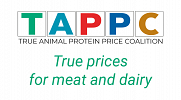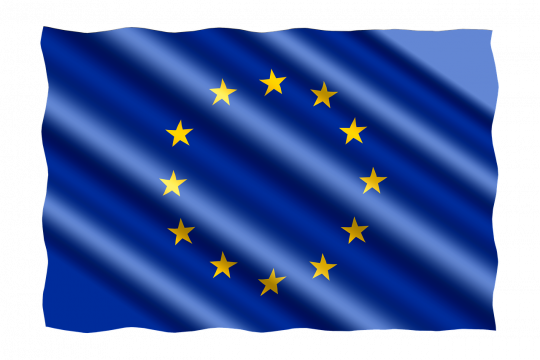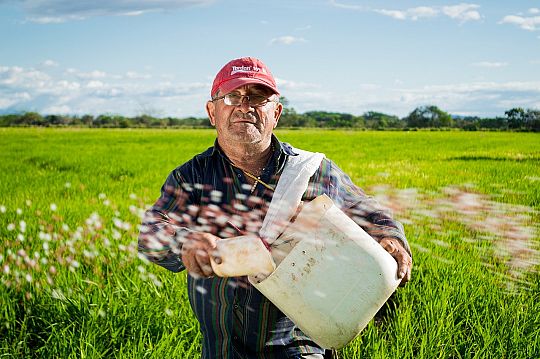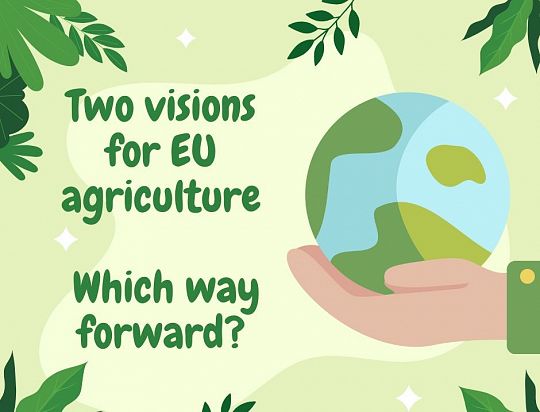Copa-Cogeca Vision for EU agriculture cannot replace Strategic Dialogue on Future of Agriculture
Copa Cogeca, the EU sector organisation for farmers, presented a new Vision for the Future of EU Agriculture 18th December, two months ahead of the vision of this topic to be presented by the new EU Commission. However, only three months ago in september, Copa Cogeca also signed the Strategic Dialogue on the Future of Agriculture. The new Copa vision is totally different. How reliable is Copa Cogeca? The EU Commission, EU agriculture ministers and the EU parliament can better listen to the recommendations of the Strategic Dialogue on the Future of Agriculture, in stead of this new, more narrow minded and sectoral Copa Cogeca vision.
In the Strategic Dialogue report, signed by Copa Cogeca too, signatories "recommend their shared perspectives to the EU executive as an orientation for action". (...) "It is – as all members hope – an important step on the way to economically profitable, environmentally sustainable and socially responsible agriculture, food systems and rural areas in the European Union". So, Copa Cogeca supported the Strategic Dialogue report recommendations.
The main four differences between the Strategic Dialogue and the new Copa Vision are on EU CAP farmer subsidies, meat versus plant-based proteins, climate policies and fiscal policies & true pricing.
This is also written in a letter sent today by TAPP Coalition to EU commissioners and EU ministers of Environment and Agriculture.
EU CAP Subsidies for farmers
The Strategic Dialogue report proposed CAP subsidies should no longer be based on area based direct support per hectare, but "based on farmers economic viability: only for farmers who need it most (targeting those most in need in particular in areas with natural constraints, small farms, young farmers, mixed farms, and new entrants) and promoting positive environmental, social and animal welfare outcomes for society". However, in their new vision, Copa writes on CAP support "to maintain area based direct support for all farms regardless of size and type of farm". This means that especially large farms (eg dairy farms) and agri-food companies and other entities like insurance companies, owning much land will continue to profit most from EU agriculture subsidies. Most EU stakeholders want to shift away from those CAP subsidies that benefit mostly large farms, while smaller farms, agro-ecological and organic farms, and young farmers need more support.
Plant based proteins versus meat
In the Strategic Dialogue Copa Cogeca co-signed for the following recommendations:
- “supporting trends towards rebalancing diets towards more plant based proteins”.
- "develop, by 2026, an EU Action Plan for Plant-based Foods to strengthen the plant-based agri-food chains from farmers all the way to consumers".
- "the launch of a European wide campaign to raise awareness about the importance of healthier and sustainable choices".
- "ensure coherence between EU agri-food promotion policy and other policy objectives such as healthy eating guidelines and sustainability objectives'
However in their new Vision, Copa Cogeca comes with proposals that are opposite of the recommendations that support plant based proteins. Here Copa Cogeca suddenly asks for:
- "Legal protection for names of animal sourced food' (this would reduce sales of plant based meat alternatives).
- "EU food promotion equally for all sectors" (so regardless of their negative impact on sustainability or public health, in order to maintain existing promotion subsidies on meat, dairy, wine etc).
- No single word on the EU Action Plan for Plant-based Foods is mentioned or to support trends towards plant based proteins.
Climate policies
The Strategic Dialogue wanted to have "a coherent mix of policies, combining incentives and regulatory measures". On an Agri-Food Emission trading system (AgETS) the stakeholders agreed "there is a clear need to reduce GHG emissions in the sector and that a strong policy in place is needed. But it is premature for definitive conclusions on AgETS. It calls on the European Commission to further work with stakeholders and experts to assess the feasibility and relevance of such a system, agreing already that 'the revenues generated by a potential AgETS should solely be earmarked to support less affluent households, investments in the transition of agri-food sector actors".
However, the new EU agriculture vision of COPA wants to rule out any new legislation (even if it leads to just a little bit more administrative burden) and only wants to have 'existing legislative tools' for climate policies for the sector and an 'EU wide system for certified carbon removals and GHG emission reduction'. Copa Cogeca acknowlages that 'looking ahead to 2050 the agriculture sector ust adopt to be climate neutral' but does not make it credible it can deliver this goal with the recommendations in its vision that rejects new climate policies like agri-ETS or new climate legislation tools, rejects a shift towards more plant based proteins and rejects more climate conditionalities in CAP subsidies and EU promotion policies.
Fiscal policies and true pricing
In the Strategic Dialogue, Copa Cogeca and other stakeholders signed for:
- 'The European Commission and Member States should provide fiscal tools that seek to foster coherent price signals, in form of tax reduction, for consumers, such as VAT reductions on more sustainable products'.
- "The true costs of food and feed production are hidden but should be better reflected in market prices. While price remains a key factor in consumer decisions, promoting quality and sustainability is equally important".
However in the new Copa vision any reference to VAT reductions for more sustainable products or to true costs to be reflected in market prices is not mentioned. However, Copa Cogeca mentions 'banning below cost selling by 2025' as a tool to include at least some environmental or societal (external) costs in food prices.
Conclusion:
Copa Cogeca as a farmer organisation is just one of the 30 stakeholders in the food and agriculture field that participated in the Strategic Dialogue on the Future of Agriculture, started by Ursula von der Leyen. Other stakeholders like retail and food service companies, banks, universities, agro-ecological and organic farmer associations, consumer organisations, environmental, nature, health and animal welfare groups also are important and made deals with Copa Gocega in the Strategic Dialogue on issues all parties agreed on. Therefore the EU Commission better can listen to the recommendations of the Strategic Dialogue compared to the narrow minded recommendations of the new EU agriculture vision presented 18th December by Copa Cogeca, that also asked a privilaged position in governance (exclusive roles in dialogues with the EU Commission, and in decisions about the Agriculture Just Transition Fund and Nature Restoration Fund). Of course, this privilaged position is out of order and not in line with the Strategic Dialogue outcome. In the task descriptions of all EU Commissioners, a reference is already made to implement the recommendations of the Strategic Dialogue on the Future of Agriculture. EU Commissioners will have to stick to their tasks. They better do not listen to proposals from Copa Cogeca that sometimes want to do the opposite of what was agreed already. It is true that a bright future for (young) farmers is needed and the EU Commission should guarantee this, especially since only 11 percent of all EU farmers are below 40 years. But there are better ways to do so, compared to the Copa Cogeca vision presented last week. Ensuring fair competition for farmers, combining it with climate goals, for instance means that retail companies and food service companies have to be forced by the EU Commission to not only ban below cost selling, but also pay the 'true price' for food products, including all external climate costs per kg food product. In this way farmers can invest in climate solutions and can bear costs for a downstream Agri-ETS, with a CBAM on meat/dairy imports.
The EU Commission should also listen to recommendations of both the Strategic Dialogue and Copa Cogeca to have reciprocity in trade deals on produce standards (climate, animal welfare, environment etc). Therefor the EU policy makers and EU Member States should not accept the EU Commission deal with the Mercosur where reciprocity on produce standards is not the case and where key concerns of farmers and climate NGO's are not taken seriously.
We remind people to the letter sent to Ursula von der Leyen and EU Commissioners in April 2024 on the need for a downstream Agri-ETS. This letter is now co signed by Caring Farmers, the European Alliance of Plantbased Foods, Youth and Environment Europe (YEE), Ecopreneur.eu, European Vegetarian Union, Proveg International, Green Impact, Compassion in World Farming EU, Federazione Nazionale Pro Natura, Questionmark, Real Food Systems, Deutsche Stiftung Meeresschutz, TransiTerra (France), Union Vegetariana Espanola, TAPP Coalition and Food Transition Coalition (TCV). Ecopreneur represents 5000 European companies, while EAPF and TAPP Coalition represent large food companies.




